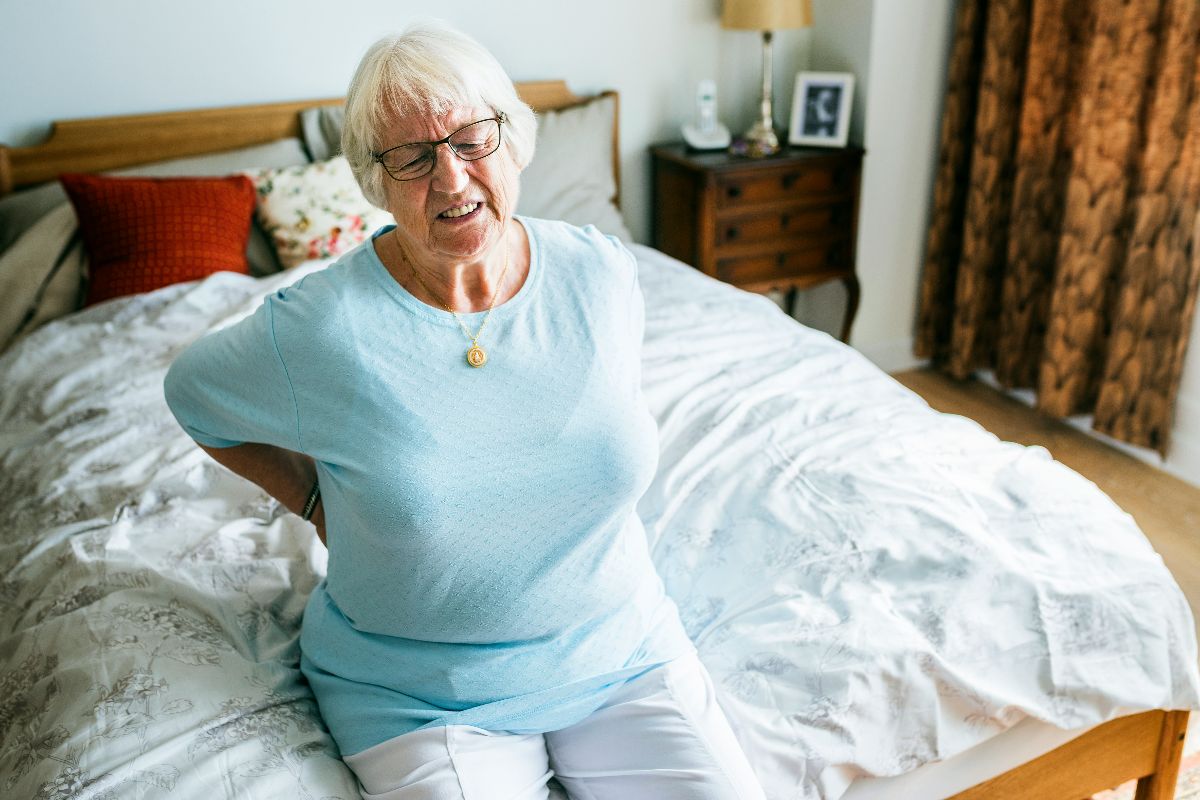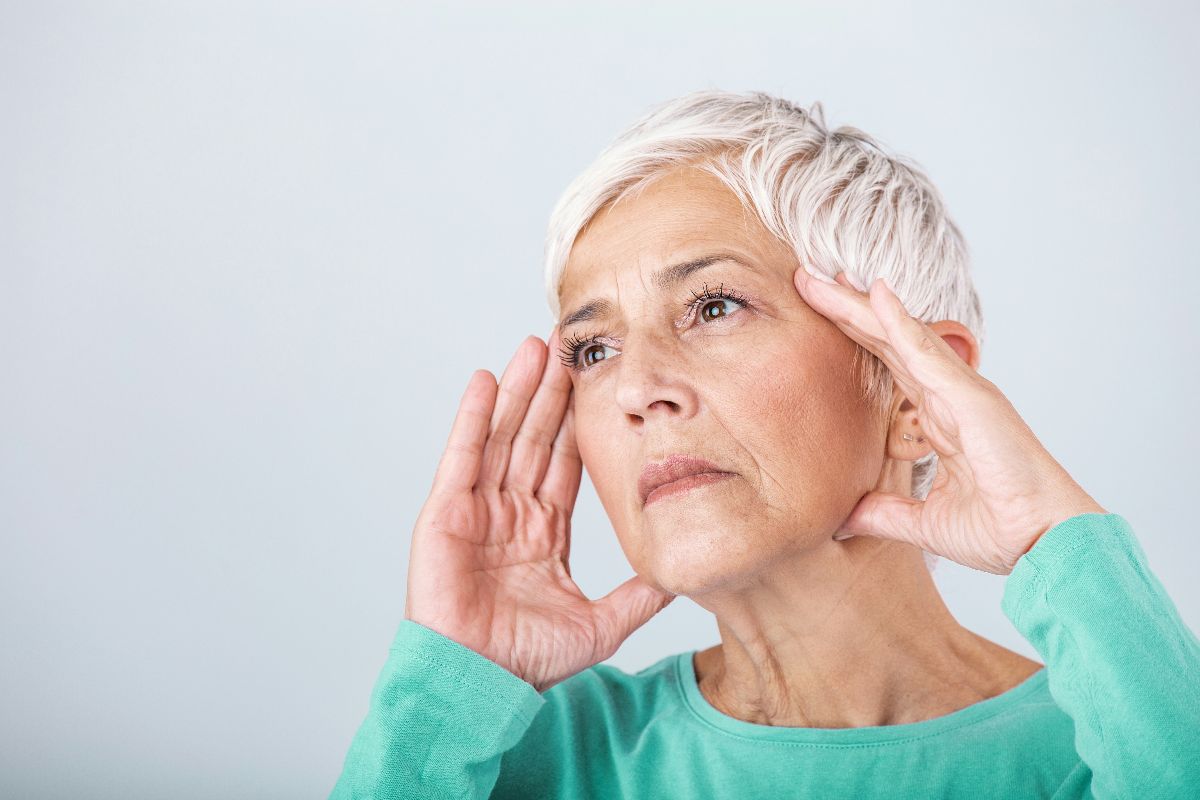Navigating the shifts in your body and mind after 40 is a journey many women share, and a significant part of this transition can be changes in your sex drive. If you’ve noticed a dip in your desire, you are not alone. It's a common and completely normal part of aging, often linked to perimenopause and menopause, two natural phases in a woman’s life. Understanding these changes is the first step toward feeling more in control and confident in your sexuality.
What happens to women’s sex drive after 40?
As women enter their 40s, hormonal shifts—especially the decline of estrogen and testosterone—can affect libido, causing vaginal dryness, discomfort, and lower desire. At the same time, stress, family responsibilities, body image, and relationship dynamics may also influence sexual drive. Still, these changes don’t mean the end of intimacy, as many women continue to enjoy satisfying sex and even reach a climax after menopause.
Common reasons for a decrease in libido after 40
The decline in sex drive during and after menopause is often a complex issue with multiple contributing factors. Understanding these can help you address the root causes and find effective solutions.
Hormonal imbalance and physical discomfort
One of the most common physical causes is hormonal imbalance, as the decline in estrogen, progesterone, and testosterone directly impacts your sex drive and physical comfort during intimacy. The lack of estrogen can lead to vaginal dryness or discomfort, also known as genitourinary syndrome of menopause (GSM), which can cause pain during sex in the pelvic area.
Fatigue and health conditions
Beyond hormones, other health and lifestyle factors are significant. Fatigue and sleep disturbances are common during perimenopause and menopause due to hot flashes and night sweats. When you’re exhausted, sex is likely the last thing on your mind. Additionally, some medications, such as antidepressants, blood pressure drugs, and certain birth control pills, can have a direct impact on libido. Underlying health conditions like thyroid issues or diabetes can also affect sexual function.
Mental health factors
Finally, mental health factors cannot be overlooked. The stress and anxiety of daily life, along with mood changes like depression, which can be linked to hormonal fluctuations, can significantly dampen your desire. When your mind is not in a good place, it’s difficult for your body to feel connected and ready for sexual intimacy.
Is it normal to experience an increased sex drive after 40?
While many women experience a decline in libido, it's a misconception that every woman's sex drive automatically plummets after 40. For some, the opposite can be true. Some women report feeling a newfound sense of sexual freedom and confidence during and after menopause.
This could be due to a variety of factors. For women who no longer worry about an unplanned pregnancy, sex can become more carefree and enjoyable. Many women also feel more secure and confident in their own skin as they get older, which can lead to a more adventurous and satisfying sex life.
💡 The emotional and physical intimacy of a long-term relationship can deepen, leading to a stronger desire for connection.
So, while a drop in libido is common, a rise in desire is also a normal and positive experience for many women in their 40s and beyond.
How to boost women’s sex drive after 40
Whether you're looking to rekindle your spark or simply enhance your sexual well-being, there are many effective strategies to help increase sex drive after 40.
Lifestyle habits
Lifestyle changes are a great place to start. Regular exercise can improve mood, boost energy, and increase blood flow, all of which contribute to a healthy libido. A balanced diet rich in nutrients can support hormonal health. Most importantly, practicing stress management through activities like yoga, meditation, or spending time in nature can help calm the mind and create space for desire.
Building intimacy through communication
Communication is also key. Talking openly and honestly with your partner about your feelings and physical changes can help you feel more connected and reduce pressure. Remember that intimacy isn't just about intercourse—exploring non-sexual touch, kissing, and cuddling can deepen your bond and rekindle desire.
Medical options
For physical and hormonal changes, there are effective medical options. Hormone replacement therapy (HRT) can address the root cause of hormonal imbalances and relieve a variety of menopause symptoms, including low libido. For women experiencing vaginal dryness, vaginal estrogen (creams, rings, or tablets) can be highly effective and is a localized treatment with minimal side effects. Additionally, over-the-counter lubricants and vaginal moisturizers are simple and effective ways to reduce discomfort and make sex more enjoyable.
Exploring alternatives approaches
Finally, consider alternative approaches. Pelvic floor therapy can be a game-changer. The pelvic floor muscles support your pelvic organs and are key to sexual sensation. Strengthening them can lead to increased blood flow, stronger orgasms, and less pain during sex. A tool like the Perifit Care+ Smart Kegel trainer uses biofeedback technology to guide you through at-home exercises, connecting to a smartphone app to provide real-time feedback.
💡 Regular Kegel exercises can benefit your sex life by improving muscle tone, which can enhance sensation and lead to a more satisfying sexual experience.
Additionally, supplements like maca or ginseng are sometimes used, but it's crucial to consult with a healthcare professional before starting any new supplement.
The journey of female libido changes after 40 is a unique and personal one. While a decline in sex drive is a common and normal part of the aging process, it's not an inevitable endpoint. Understanding the hormonal, physical, and psychological factors at play is the first step toward taking control of your sexual health. By incorporating simple lifestyle adjustments, opening up communication with your partner, and exploring medical and alternative solutions, you can continue to enjoy a fulfilling and vibrant sexual life. Your 40s and beyond can be a time of great confidence and sexual freedom.
Sources:





